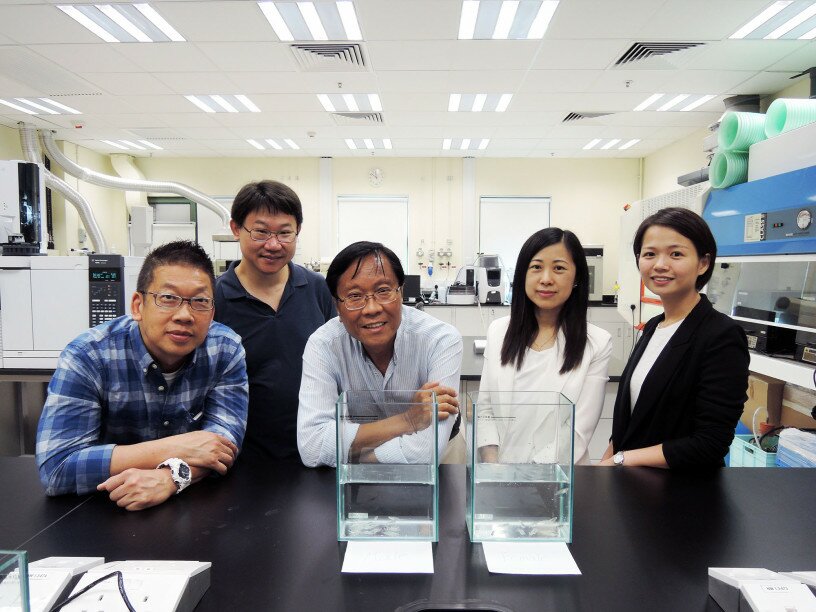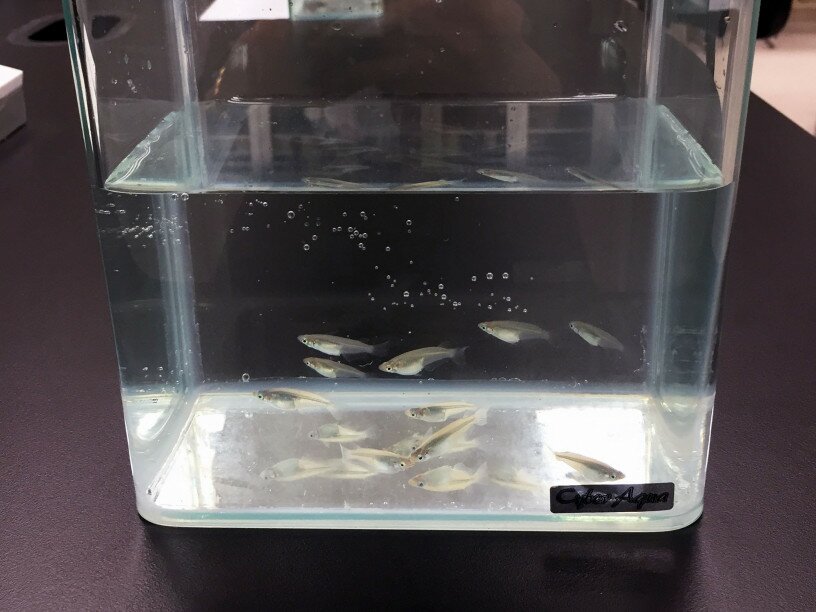A Major Breakthrough in Environmental Science Hypoxia Causes Transgenerational Reproductive Impairments in Fish
A Major Breakthrough in Environmental Science Hypoxia Causes Transgenerational Reproductive Impairments in Fish
A research team comprising experts from The Education University of Hong Kong (EdUHK), City University of Hong Kong, Hong Kong Baptist University, The Chinese University of Hong Kong and The University of Hong Kong has discovered, for the first time in science, that hypoxia can cause transgenerational reproductive impairments in fish – a major breakthrough in environmental science and management.
This interdisciplinary, joint university research project was conducted from 2012 to 2016. The researchers continually tracked and compared the reproductive ability of adult marine medaka and their offspring for three generations grown under hypoxia and normal oxygen. This important discovery has just been published in the authoritative scientific journal Nature Communications.
The team kept two groups of adult marine medaka under normal oxygen seawater and hypoxia separately, and studied their reproductive ability, epigenetics, protein and gene expressions. In the second generation, offspring from fish grown under hypoxia were divided into two groups: the first group was grown continuously under hypoxia, and the second group was returned to a normal level of oxygen. The team then compared the reproductive ability, epigenetics, protein and gene expressions in all of the groups, to understand how hypoxia may affect the reproductive performance of their subsequent generations.
The team discovered that the two subsequent generations produced by parents who had lived under hypoxia had a lower level of male hormones, poorer sperm quality and lower sperm motility and fertilisation success, despite having never been exposed to hypoxia. This finding is not only scientifically significant but will also have a major impact on the management of our global marine environment. It is particularly important in Hong Kong, where as hypoxia is commonly observed in Tolo Harbour, Deep Bay, Victoria Harbour and the southern waters.
Given that hypoxia can cause transgenerational reproductive impairments in fish, environmental improvements will not be sufficient to reverse the situation. In other words, the current hypoxic marine environment will have a long-lasting impact on our fishery resources, which may further disturb the balance of our marine ecosystems.
Research team leader Professor Rudolf Wu – Research Chair Professor of Biological Sciences at EdUHK – expressed his concern: “Recent climate change has caused the sea temperature to rise. This, together with the large amount of nutrient-rich wastewater being disposed of in the ocean has caused excessive phytoplankton growth, which has led to hypoxia.” He also pointed out that “since the epigenetics and sex hormones regulation mechanisms are highly conserved in both fish and humans, hypoxia may also lead to transgenerational reproductive impairment in male adult humans.” Studies have shown that the sex hormone levels of residents at high altitudes are lower than those of lowland residents. A lower sex hormone level in male sleep apnea patients provides additional evidence that oxygen deprivation can influence hormone secretion in humans, and it is possible that the reproductive ability of their children may also be affected.
Professor Wu said that the results of this research highlight that environmental impacts and adverse consequences of hypoxia are much more long-lasting than we thought. “Despite some people argue that improvements in environmental quality must be cost-effective, we must also take into account that pollution may cause permanent reproductive impairments in future generations. If timely protective measures are not taken, the subsequent damage to humans and marine organisms may be long lasting and irreversible.”







